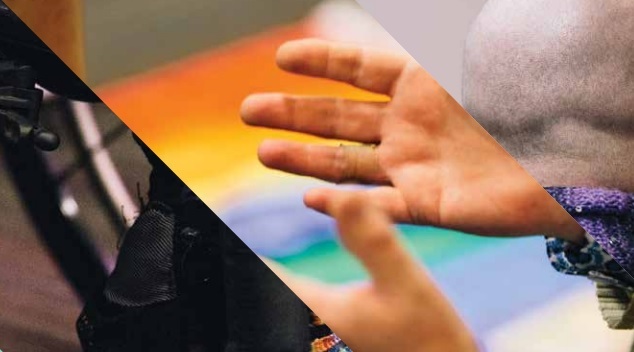
In what appears to be a first of its kind in the world, the National LGBTI Health Alliance released the National Lesbian, Gay, Bisexual, Transgender and Intersex – Mental Health and Suicide Prevention Strategy. This strategy has been developed to systematically address the dramatic over-representation of lesbian, gay, bisexual, trans, and intersex people in measures of suicidality and mental ill-health. OUTinPerth spoke to Co-author Ross Jacobs to find out more.
Can you tell me a little about the background of how the strategy came to be?
“The strategy was made as a way to really underline the work of many individuals and organisations in collaboration with the MindOUT team over the greater part of a decade. It’s designed to address the invisibility of LGBTI people in national suicide prevention and mental health strategies that are released at a national level.”
Is it fair to say that when it comes to existing mental health and suicide strategies, that LGBTIQ+ people are at worst invisible and at best wildly misrepresented?
“Typically, LGBTI people are mentioned only once in such documents if they are mentioned at all. It’s known and named that LGBTI people have high risk for suicide or poor mental health, but even though this naming happens, there has never been a real attempt in these nationally guiding frameworks to say why this is the case, or what to do about it. ‘Gay and lesbian’ people are named sometimes, which is even less inclusive of the very real risks faced by bisexual, transgender and intersex communities and individuals. We thought it was time to change this.”
There are often comments that when it comes to LGBTIQ+ populations mental health and suicide data is incomplete or misrepresented. Was this part of the decision not to include specific statistics in the document?
“Concrete stats about LGBTI people is possibly the most common question we are asked at the National LGBTI Health Alliance. But the truth of the matter is, that the current data landscape only gives us small glimpses into this reality – through studies of particular groups, or surveys, or pieced together information from health services. It’s really hard to come to definite conclusions about the true picture of mental health for LGBTI people since any combination of such studies has gaps, such as some studies looking at particular ages, or others omitting sub groups like intersex people altogether.”
The strategy calls for collaboration; for coordination and for commitment from the Mental Health Sector. It is aimed to help prevent death by suicide and ill mental health within the LGBTIQ+ community by supporting organisations and government to develop effective suicide prevention initiatives that acknowledge and affirm the wide variety of bodies, genders, relationships, and sexualities that comprise the Australian population.
Ross explained that the Alliance wanted the goals to be as far-reaching as they could be to enable Mental Health services to use their own existing principles and see how they fit with LGBTIQ+ specific principles, thus making it easier for more services to prioritise applying this strategy, with aim of creating more safe spaces for LGBTIQ+ people to seek information and supports.
The principles are comprised of 6 main strategic goals: Inclusive and Accessible Care, Evidence, Data Collection and Research, Diversity of LGBTI population, Intersectionality and Social Inclusion, Skilled and Knowledgeable Workforce and Promotion and Prevention.
Can you talk a little about how these goals came to be?
”When we were pulling together all the information we could find in current documents, and then considering what the purpose of the strategy was – coordinating a national improvement in working with LGBTI people who are at risk – we realised that it needed to be a really open strategy. It needed to help guide the great work going on around the country in specialist LGBTI settings, but also give a roadmap to mainstream mental health organisations who really want to get better at LGBTI content but don’t know how.”
The goal ultimately being to improve both the access to and quality of mental health and suicide prevention services for LGBTIQ+ Australians. Ross went on to explain;
”What’s important for us is that the outcomes for LGBTI people are made better by services engaging significantly with our communities’ day to day experiences in contemporary Australia, which sometimes lead to poor mental health. At heart, the strategy tries to deepen and add nuance to an understanding of what it means to include LGBTI people in every possible setting.”
Is there the sense that perhaps organisations are starting to understand why they need to know about LGBTIQ+ cultural competency and inclusive practice, but more needs to be done on how to do this and do this well?
”There is a real shift in understanding that services need to get better at working with LGBTI people but putting up a pride flag in your waiting room is not a replacement for deep engagement. If organisations can instead embrace the principles we explore in the Strategy, then real progress for helping LBGTI people get the help they need will be the result.”
So where to from here?
”This is a long-term strategy. We know that change won’t happen overnight. We’re really focused on getting the Strategy out there and understood. The response so far has been fantastic, and over the coming months we’ll be speaking with individuals and organisation about what the strategy might mean for their work, and how it can support a national coordination to getting to better mental health for our communities. Translating the strategy into real outcomes and concrete actions will be a huge focus for us for the foreseeable future!”
How can LGBTIQ+ people and our allies support this strategy and advocate for it in the spaces they live work and play?
“It would be great if everyone had a read through the document and shared it with the people in their own lives who are engaged with or work in, mental health spaces. But when you stop and think about it, that’s almost everyone!”
The National Lesbian, Gay, Bisexual, Transgender and Intersex – Mental health and Suicide Prevention Strategy can be found at lgbtihealth.org.au
If you or someone you love need support for their mental health and well being – Talk It Out!
QLife 1800 184 527 www.qlife.org.au (3pm-midnight) or Lifeline 13 11 14 (24 hrs)
Bella Broadway





